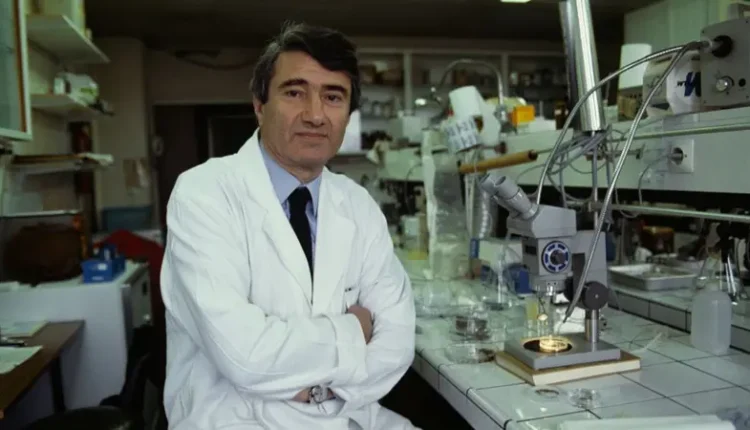Étienne-Émile Baulieu, the pioneering French scientist behind the abortion pill, has died at the age of 98. His widow, Simone Harari Baulieu, confirmed he passed away at home in Paris on Friday.
Dr Baulieu was the key figure in developing RU-486 — commonly known as mifepristone — a drug that revolutionised reproductive health by providing women worldwide with a non-surgical abortion option that is both safe and affordable.
In a statement, Harari Baulieu said his work was “guided by a commitment to science, women’s freedom, and the goal of helping people live better and longer lives.”
French President Emmanuel Macron hailed Dr Baulieu as “a beacon of courage” and “a progressive mind who enabled women to win their freedom.” In a tribute shared on X, Macron added, “Few French people have changed the world to such an extent.”
France’s gender equality minister, Aurore Bergé, also praised the scientist, saying he had been driven by a lifelong dedication to “human dignity.”
Born Étienne Blum on 12 December 1926 in Strasbourg, he adopted the name Baulieu at 15 to join the French resistance during Nazi occupation. He later trained in medicine and spent time in the United States working with Dr Gregory Pincus, the American scientist widely credited with developing the contraceptive pill.
Encouraged by Pincus to pursue work in reproductive hormones, Baulieu returned to France and developed a way to block the hormone progesterone, which plays a key role in early pregnancy. That breakthrough led to the creation of RU-486 in the 1980s.
Though the pill was developed in under a decade, Baulieu spent years advocating for its acceptance in countries across the globe, often facing fierce opposition and personal threats from anti-abortion groups. The World Health Organization added mifepristone to its list of essential medicines in 2010.
When President Macron awarded him France’s highest honour, the Grand Cross of the Legion d’Honneur, in 2023, he paid tribute to Baulieu’s resilience. “You, a Jew and a member of the resistance, were heaped with the most atrocious insults and compared to Nazi scientists. But you held firm, out of love for freedom and science,” Macron said.
Even in later years, Baulieu remained vocal about reproductive rights. Following Wyoming’s 2023 ban on the abortion pill, he condemned the move as regressive, saying he had spent much of his life fighting to expand “the freedom of women.”
In addition to his legacy in reproductive medicine, Baulieu’s more recent research explored treatments for Alzheimer’s disease and severe depression.
He leaves behind a legacy marked by scientific innovation, human rights advocacy, and a lifelong belief in science as a force for freedom.



[…] lager continues to dominate the global market with 92% of total beer volume, non-alcoholic beer is steadily rising — currently holding a 2% share, CNBC […]